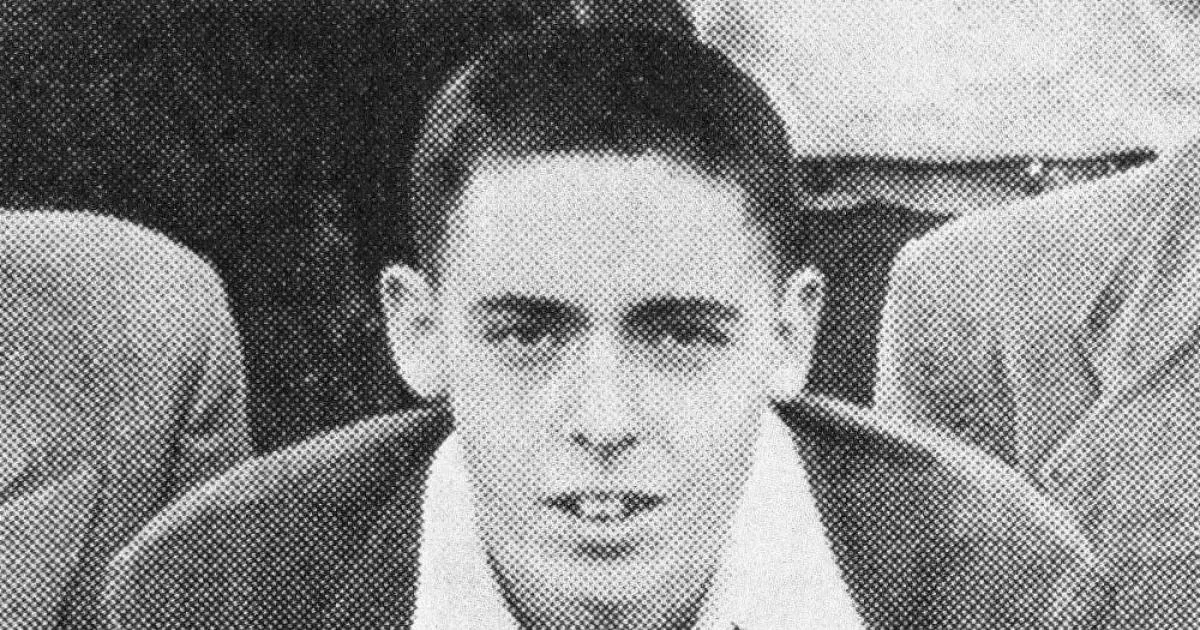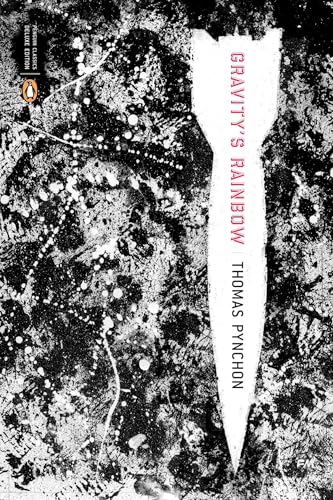Thomas Pynchon is a reclusive American novelist renowned for his complex postmodern fiction. His works are characterized by dense allusions to a wide range of subjects including history, science, literature and popular culture, and are often laced with humor and explorations of paranoia. Regarded as one of America's greatest novelists, Pynchon maintains a highly private life, contributing to his mystique and the circulation of rumors about his identity and whereabouts.
1907: Birth of Thomas Ruggles Pynchon Sr.
In 1907, Thomas Ruggles Pynchon Sr., father of Thomas Pynchon Jr., was born. He worked as an engineer and politician.
1909: Birth of Katherine Frances Bennett
In 1909, Katherine Frances Bennett, mother of Thomas Pynchon Jr., was born. She worked as a nurse.
1923: Time Magazine Founding
Since the magazine's founding in 1923, Time has been a source of inspiration and recognition, listing 'The Crying of Lot 49' as one of the 100 best English-language novels published since then.
1932: Setting of Shadow Ticket
Pynchon's novel Shadow Ticket, due in October 2025, is set in 1932.
May 8, 1937: Thomas Pynchon's Birth
On May 8, 1937, Thomas Ruggles Pynchon Jr., the American writer known for his complex postmodern fiction, was born. He is noted for his dense references to popular culture, history, and paranoia.
1939: Slothrop loses his "harp"
In 1939, in Gravity's Rainbow, there is an apocryphal report that Tyrone Slothrop lost his "harp" down the toilet at the Roseland Ballroom in Roxbury, Boston.
1945: Slothrop recovers his "harp"
In 1945, in Gravity's Rainbow, there is an apocryphal report that Tyrone Slothrop recovered his "harp", in a German stream.
1953: High School Graduation
In 1953, at the age of 16, Pynchon graduated from high school and began studying engineering physics at Cornell University that fall.
1956: Service on the USS Hank during the Suez Crisis
In 1956, Pynchon was aboard the destroyer USS Hank in the Mediterranean during the Suez Crisis, while serving in the U.S. Navy.
1957: Return to Cornell University
In 1957, Pynchon returned to Cornell to pursue a degree in English after his time in the Navy.
1958: Co-creation of Minstrel Island
In 1958, Pynchon and Kirkpatrick Sale co-wrote part or all of a science-fiction musical, 'Minstrel Island', which portrays a dystopian future in which IBM rules the world.
March 1959: Publication of "The Small Rain"
In March 1959, Pynchon's first published story, "The Small Rain", appeared in the Cornell Writer.
June 1959: Graduation from Cornell University
In June 1959, Pynchon graduated from Cornell University with a B.A. with distinction as a member of Phi Beta Kappa.
1960: Publication of "Low-lands" and "Entropy"
In 1960, two of Pynchon's earliest short stories were published: "Low-lands", featuring a meditation on Heisenberg's uncertainty principle, and "Entropy", which introduced the concept that would become synonymous with Pynchon's name.
1961: Publication of "Under the Rose"
In 1961, Thomas Pynchon published "Under the Rose", an early short story featuring a cyborg set in Victorian-era Egypt, foreshadowing steampunk themes.
1963: Publication of V.
In 1963, Thomas Pynchon published his novel V., marking a significant milestone in his career.
1963: Start date for letters to Candida Donadio
In 1963, Thomas Pynchon started writing letters to his literary agent, Candida Donadio. These letters were later donated to the Pierpont Morgan Library.
April 1964: Letter to Candida Donadio
In April 1964, Pynchon wrote a letter to his agent, Candida Donadio, mentioning that he had four novels in progress and expressing high hopes for their literary impact.
1964: Rejection from UC Berkeley
In 1964, Pynchon applied to study mathematics as a graduate student at the University of California, Berkeley, but was turned down.
1964: Publication of "The Secret Integration"
In 1964, Pynchon's last published short story, "The Secret Integration", explored racial integration through the experiences of young boys.
1964: Inspiration for fiction
In 1964, aspects of Pynchon's ancestry and family background inspired his fiction, particularly in the Slothrop family histories related in the short story "The Secret Integration".
December 1965: Contribution to Holiday Magazine
In December 1965, Pynchon contributed an appreciation of Oakley Hall's 'Warlock' to a feature called "A Gift of Books" in Holiday magazine.
December 1965: Rejection of Bennington College Teaching Invitation
In December 1965, Pynchon declined an invitation to teach literature at Bennington College, stating he was working on three novels simultaneously.
1965: Writing a "potboiler"
In 1965, Pynchon wrote a letter to Donadio, saying he was in the middle of writing a "potboiler", which later grew to be 'The Crying of Lot 49'.
June 1966: Publication of "A Journey Into the Mind of Watts"
In June 1966, Pynchon wrote "A Journey Into the Mind of Watts", a firsthand report on the aftermath of the Watts Riots in Los Angeles published in The New York Times Magazine.
1966: Publication of The Crying of Lot 49
In 1966, Pynchon's second novel, 'The Crying of Lot 49', was published.
1973: Publication of Gravity's Rainbow
In 1973, Pynchon published 'Gravity's Rainbow', a complex and allusive novel that combined many of the themes of his earlier work.
1974: National Book Award Acceptance by "Professor" Irwin Corey
At the 1974 National Book Awards ceremony, Tom Guinzberg arranged for "Professor" Irwin Corey to accept the prize on Pynchon's behalf. Many assumed it was Pynchon himself.
1974: National Book Award
In 1974, Gravity's Rainbow shared the National Book Award with A Crown of Feathers and Other Stories by Isaac Bashevis Singer.
1975: Decline of the William Dean Howells Medal
In 1975, Thomas Pynchon declined the William Dean Howells Medal.
1977: Response to Salinger Theory
In 1977, Pynchon responded to a theory by John Batchelor that he was J. D. Salinger, stating that "some of it was true, but none of the interesting parts."
1980: Recognition of Pulitzer Prize Finalists Begins
Since 1980, the Pulitzer Prize For Fiction panel has recognized finalists. This change occurred after 'Gravity's Rainbow' was rejected in 1974, leading to no award being given that year.
1982: End date for letters to Candida Donadio
In 1982, Thomas Pynchon ended a period of writing letters to his literary agent, Candida Donadio. These letters were later donated to the Pierpont Morgan Library.
1984: Introduction for Slow Learner
Around 1984, Thomas Pynchon wrote an introduction for his short story collection Slow Learner, sharing autobiographical comments and recollections.
1984: Publication of Slow Learner and Article in The New York Times Book Review
In 1984, Pynchon's collection of early short stories, Slow Learner, was published, featuring a lengthy autobiographical introduction. Also in October 1984, the article "Is It O.K. to Be a Luddite?" appeared in The New York Times Book Review.
1987: Gravity's Rainbow named "Old Testament" of Cyberpunk
In 1987, Timothy Leary's essay in Spin magazine named Gravity's Rainbow as the "Old Testament" of cyberpunk, marking Pynchon's influence on the genre.
April 1988: Pynchon Reviews Love in the Time of Cholera
In April 1988, Thomas Pynchon reviewed Gabriel García Márquez's Love in the Time of Cholera in The New York Times, praising it as "a shining and heartbreaking book."
1988: Receives MacArthur Fellowship
In 1988, Thomas Pynchon received a MacArthur Fellowship.
1988: Tom Hawkins' suicide
In 1988, Tom Hawkins, an obscure Beat writer, murdered his wife and then committed suicide. Literary detective Donald Foster later proved that Hawkins wrote the "Tinasky" letters.
1989: Pynchon signs letter of solidarity for Salman Rushdie
In 1989, Thomas Pynchon was among authors who signed a letter of solidarity with Salman Rushdie after Rushdie received death threats for his novel The Satanic Verses. Pynchon expressed his hope for tolerance and respect for life.
1990: Marriage to Melanie Jackson
In 1990, Thomas Pynchon married Melanie Jackson, his literary agent, who was a great-granddaughter of Theodore Roosevelt and a granddaughter of Robert H. Jackson. The wedding was a key moment in his life.
1990: Publication of Vineland
In 1990, Thomas Pynchon published his novel 'Vineland', adding another significant work to his bibliography.
1991: Birth of son, Jackson
In 1991, Thomas Pynchon and Melanie Jackson had a son, Jackson. The birth of his son marked an important event in his life.
1991: Reference in Janette Turner Hospital's short story
In 1991, Thomas Pynchon was referenced in Janette Turner Hospital's short story "For Mr. Voss or Occupant". The protagonist explains to her daughter that she is writing.
June 1993: Publication of "Nearer, My Couch, to Thee"
In June 1993, Pynchon's article "Nearer, My Couch, to Thee", was published in The New York Times Book Review as part of a series on the Seven Deadly Sins, with Pynchon focusing on "Sloth".
1993: Rumors of Unabomber or Waco Branch Davidians sympathizer
In 1993, claims arose that Thomas Pynchon was the Unabomber or a sympathizer with the Waco Branch Davidians. These rumors added to the speculation surrounding him.
1994: Involvement with The John Larroquette Show
In 1994, Thomas Pynchon contacted the producers of NBC's "The John Larroquette Show" to offer suggestions. He provided the title of a fictitious work, "Pandemonium of the Sun", and vetoed a scene involving an extra playing him. He also requested that the character be seen wearing a Roky Erickson T-shirt.
1994: Pynchon pens liner notes for Spiked!
In 1994, Thomas Pynchon penned a 3,000-word set of liner notes for the album Spiked!, a collection of Spike Jones's recordings.
1995: Liner notes for Lotion's album
In 1995, Thomas Pynchon befriended members of the band Lotion and wrote liner notes for their album, Nobody's Cool. Initially, the band claimed that Pynchon saw them in concert and became a groupie, but later stated that he met them through his accountant.
1995: Death of Thomas Ruggles Pynchon Sr.
In 1995, Thomas Ruggles Pynchon Sr., father of Thomas Pynchon Jr., passed away.
June 1996: Interview with Lotion for Esquire
In June 1996, Thomas Pynchon conducted an interview with the band Lotion titled "Lunch with Lotion" for Esquire in anticipation of the release of Mason & Dixon.
1996: Death of Katherine Frances Bennett
In 1996, Katherine Frances Bennett, the mother of Thomas Pynchon Jr., passed away.
1996: Rumor of being Wanda Tinasky
In 1996, an elaborate rumor emerged that Thomas Pynchon and one "Wanda Tinasky" were the same person. A collection of the Tinasky letters was published. Pynchon denied writing the letters, and no direct attribution to him was ever made.
1997: Publication of Mason & Dixon
In 1997, Thomas Pynchon released his novel 'Mason & Dixon', showcasing his continued literary output.
1998: Donation of letters to Pierpont Morgan Library
In 1998, over 120 letters that Thomas Pynchon had written to his longtime agent, Candida Donadio, were donated to the Pierpont Morgan Library in New York City. The letters ranged from 1963 to 1982 and were sealed until after Pynchon's death at his request.
2001: Contribution to 'Positively 4th Street'
In 2001, Thomas Pynchon provided faxed answers to questions submitted by author David Hajdu and allowed excerpts from his personal correspondence to be quoted in Hajdu's book, Positively 4th Street: The Lives and Times of Joan Baez, Bob Dylan, Mimi Baez Fariña and Richard Fariña.

2004: Cameo appearances on The Simpsons
In 2004, Thomas Pynchon made two cameo animated appearances on The Simpsons. He appeared in "Diatribe of a Mad Housewife", providing a blurb for Marge's book, and in "All's Fair in Oven War", using puns on his novel titles.
July 2006: Amazon page for upcoming novel
In July 2006, Amazon created a page showing an upcoming 992-page, untitled novel by Thomas Pynchon, with a description purporting to be written by Pynchon himself. The description was later restored along with the novel's title, Against the Day.
November 19, 2006: Non-speaking cameo on 'The Simpsons'
On November 19, 2006, Thomas Pynchon's cartoon representation reappeared in a third, non-speaking cameo, as a guest at the fictional WordLoaf convention depicted in the 18th season episode "Moe'N'a Lisa" of The Simpsons. The episode aired the Sunday before Against the Day was released.
November 21, 2006: Release of Against the Day
On November 21, 2006, Against the Day was released. The book contains 1,085 pages in the first edition hardcover.
December 6, 2006: Letter supporting Ian McEwan
On December 6, 2006, Thomas Pynchon joined a campaign with other authors to clear Ian McEwan of plagiarism charges by sending a typewritten letter to McEwan's British publisher, which was published in the Daily Telegraph newspaper.
2006: Pynchon defends Ian McEwan
In 2006, Thomas Pynchon wrote a letter defending Ian McEwan against charges of plagiarism in his novel Atonement.
2006: Publication of Against the Day
In 2006, Thomas Pynchon's novel, 'Against the Day' was published.
August 4, 2009: Promotional Video Release
On August 4, 2009, Penguin Books released a promotional video for Pynchon's novel Inherent Vice, with the character voiceover narrated by Pynchon.
August 2009: Publication of Inherent Vice
In August 2009, Inherent Vice was published.
2009: YouTube promotional teaser for Inherent Vice
In 2009, Thomas Pynchon's YouTube promotional teaser for his novel Inherent Vice marked the second time a recording of his voice was released to mainstream outlets, after his appearances on The Simpsons.
2009: Publication of Inherent Vice
In 2009, Thomas Pynchon's novel, 'Inherent Vice' was published.
2009: Lotion clarifies relationship with Pynchon
In 2009, members of the band Lotion clarified that Thomas Pynchon did not initially see them in concert and become a groupie, but met them through his accountant.
2012: Release of novels in e-book format
In 2012, Thomas Pynchon's novels were released in e-book format, after a long holdout. Penguin Press reported that the novels' length and complex page layouts made the digital conversion challenging.
2013: Publication of Bleeding Edge
In 2013, Thomas Pynchon's novel 'Bleeding Edge' was published.
2013: Son's graduation from Columbia University
In 2013, Thomas Pynchon's son, Jackson Pynchon, graduated from Columbia University, where he was affiliated with St. Anthony Hall.
September 2014: Rumored cameo in 'Inherent Vice' film
In September 2014, Josh Brolin said that Thomas Pynchon had made a cameo in the Inherent Vice film adaptation, leading to an online search for his appearance, which eventually targeted actor Charley Morgan.
2014: Film Adaptation of Inherent Vice
In 2014, 'Inherent Vice', a novel by Thomas Pynchon, was adapted into a film.
November 6, 2018: Photo published by National Enquirer
On November 6, 2018, Thomas Pynchon was photographed near his apartment in New York's Upper West Side district while voting with his son. The National Enquirer published the photo, claiming it was the first photo of him "in decades".
December 2022: Acquisition of literary archive by Huntington Library
In December 2022, the Huntington Library announced its acquisition of Thomas Pynchon's literary archive, including typescripts and drafts of his novels, handwritten notes, correspondence with publishers, and research.
April 2025: Shadow Ticket Novel Announcement
In April 2025, Penguin Press announced a new novel by Pynchon, Shadow Ticket, with a synopsis.
October 2025: Shadow Ticket Publication
In October 2025, Shadow Ticket, a new novel by Pynchon, is due for publication.
2025: Release of One Battle After Another
In 2025, Paul Thomas Anderson released the film One Battle After Another, inspired by plot points from Pynchon's novel, Vineland.
2025: Publication of Shadow Ticket
In 2025, Thomas Pynchon's novel 'Shadow Ticket' was published.
Mentioned in this timeline
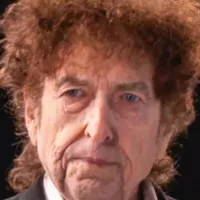
Bob Dylan is a highly influential American singer-songwriter renowned as...
California is a U S state on the Pacific Coast...
CNN Cable News Network is an American multinational news media...
The National Broadcasting Company NBC is a major American commercial...

The Boeing Company is a multinational corporation and one of...

Los Angeles is the most populous city in California and...
Trending
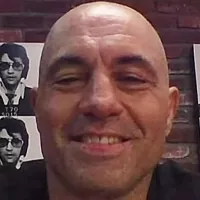
2 minutes ago Joe Rogan Interviews RFK Jr. on Trump's ICE Raids and US Taxpayer Losses.

2 minutes ago Joki? Confronts Dort After Trip, Tempers Flare in Nuggets-Thunder Game

2 minutes ago Arizona Dominates Kansas to Secure Share of Big 12 Title in Basketball Game

3 minutes ago Gui Santos Secures 3-Year, $15M Deal with Warriors; Curry Issues Warning
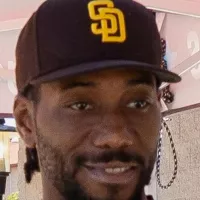
3 minutes ago Kawhi Leonard potentially playing vs Pelicans; Zach Lowe praises All-NBA caliber.
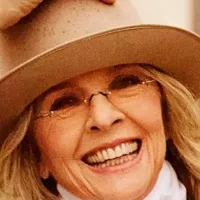
1 hour ago Ashley Padilla shares life lessons learned as Diane Keaton's assistant on SNL.
Popular

Jesse Jackson is an American civil rights activist politician and...

Hillary Diane Rodham Clinton is a prominent American politician lawyer...

Jim Carrey is a Canadian-American actor and comedian celebrated for...

XXXTentacion born Jahseh Dwayne Ricardo Onfroy was a controversial yet...

Kashyap Pramod Patel is an American lawyer who became the...

Michael Joseph Jackson the King of Pop was a highly...
